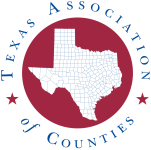Blog | May 09, 2024
Blog: AAPI Month Spotlight with Bexar County Judge Peter Sakai
Sakai, one of three Asian American Pacific Islander county judges in Texas, recounts family history in WWII internment camp

Bexar County Judge Peter Sakai, 69, recalls how different his coming-of-age experience was to that of his father. While Sakai grew his hair long and protested the Vietnam War among like-minded University of Texas students, his father, a strict Rio Grande Valley farmer who continued to wear a crew cut well after leaving the U.S. Army, rarely entertained criticism of his beloved country.
But amid the fierce loyalty, Sakai’s father never hid the injustice his family endured by the very same country he served. Torn away from their home in California, Sakai’s father, his father’s three siblings and their parents were sent to an internment camp during World War II. They spent four years in a remote part of the Mojave Desert on the Arizona-Mexico border, living in old horse stalls on a former military post.
Sakai remembers visiting the desolate site as a young man alongside his father.
“He wanted me to understand the intense feelings of the injustice of those circumstances. He wanted me to understand … the racism that was directed at the Japanese, especially the Japanese Americans,” Sakai said.
“There are a lot of stories he later shared from those experiences that ingrained into me the sense of duty to the Constitution and the rule of law. I truly believe that that experience is what has put me in the place that I'm at now,” Sakai said.
After graduating in 1979 as the only Asian American in his University of Texas School of Law class, Sakai began his career as an assistant Bexar County district attorney before a stint in private practice that included representing municipalities. He returned to public service after being appointed judge of a newly created children’s court in Bexar County, a position he held – and flourished in – for nearly a decade. He then served four terms as the 225th State District Court Judge until 2022.
Sakai was ready to retire from the courtroom until the county judge position became available – a challenge he couldn’t resist.
“I didn't want to retire because, as my wife said, I couldn't come home and watch TV all the time,” Sakai joked.
“Being the county judge, I really felt that I could take my passion and commitment for children and families to another level.”
Making history
Sakai won the seat by nearly 18 points in 2022, becoming the first Asian American county judge in Bexar County history. He, along with San Antonio Mayor Ron Niremberg, who is part Filipino, were recognized nationally as a rare case of two Asian Americans in charge of a major urban region.
While Asian Americans are the fastest growing racial group in the state of Texas, they occupy a disproportionately low number of leadership roles in local government. Only three of the state’s 254 county judges are Asian Americans – a scant 1%: Sakai in Bexar County, K.P. George in Fort Bend County and Leo Hung in Reeves County; however, 5.7% of Texans are Asians, according to census data.
The state’s Asian populations are concentrated in the major urban and suburban counties around Dallas, Austin, and Houston. But modest shares exist in Calhoun and Potter counties, where 5.55% and 5.21% of their populations are Asians, according to census data compiled in TAC’s County Information Program.
Asian Americans not monolithic
Sakai reminds fellow county leaders that when creating policies, particularly those that affect Asian Americans, to recognize that this group is not monolithic. Residents come from dozens of countries, each with vastly different cultures and dialects. They span income levels, occupations and educational attainment. Many are also second generation Asian Americans who straddle two cultural worlds and come with their own set of needs.
“I don’t choose to look at what’s an Asian American policy. I choose to look at what are the needs of these people that are unique to my community,” Sakai said.
Sakai has also capitalized on his cultural background to maintain relations with Asian industry and those looking to expand in Texas. This month, he is traveling to Japan to introduce himself to Toyota executives. The company has had a manufacturing plant in Bexar County for the last 20 years.
In the same vein, Sakai aims to build partnerships with private and nonprofit sectors to tackle social issues such as family violence, mental health and drug and alcohol treatment.
Sakai said the toughest challenge so far as county judge is fighting the status quo. Among the accomplishments Sakai has been most proud of so far in his term is convening a select committee of community stakeholders to choose a new probate judge, instead of leaving it up to the commissioners court to be the sole decisionmaker.
“I try my best to make county government more responsive, to be more accountable, to be more open and transparent,” Sakai said. “I want to see change.”
Tune in to the Texas County Voice podcast this month to learn more about Sakai’s family history and his journey to becoming a county judge.

